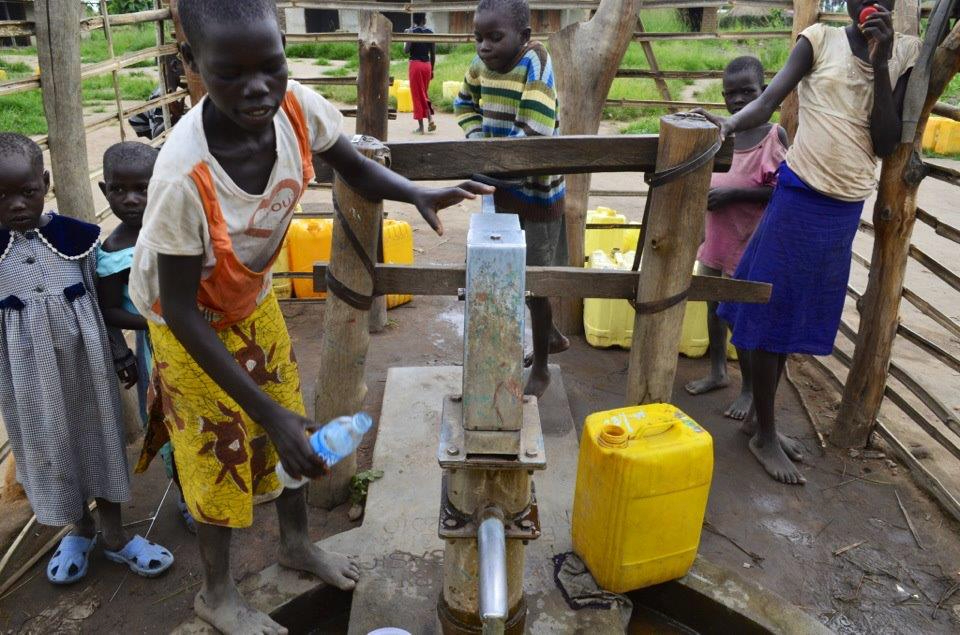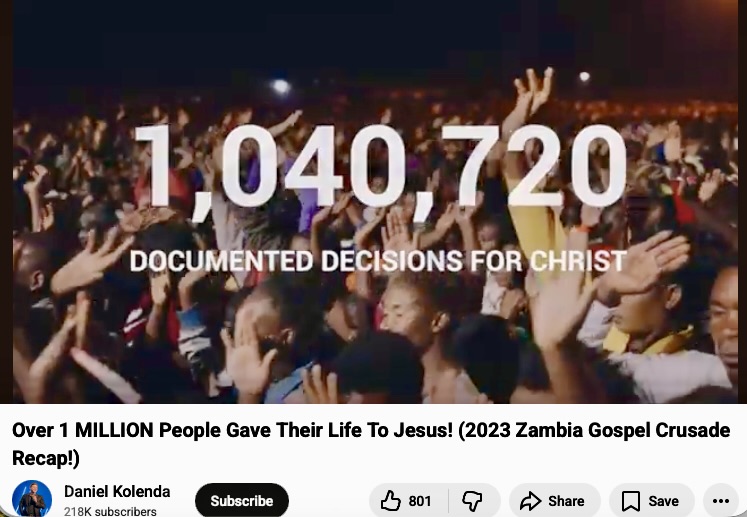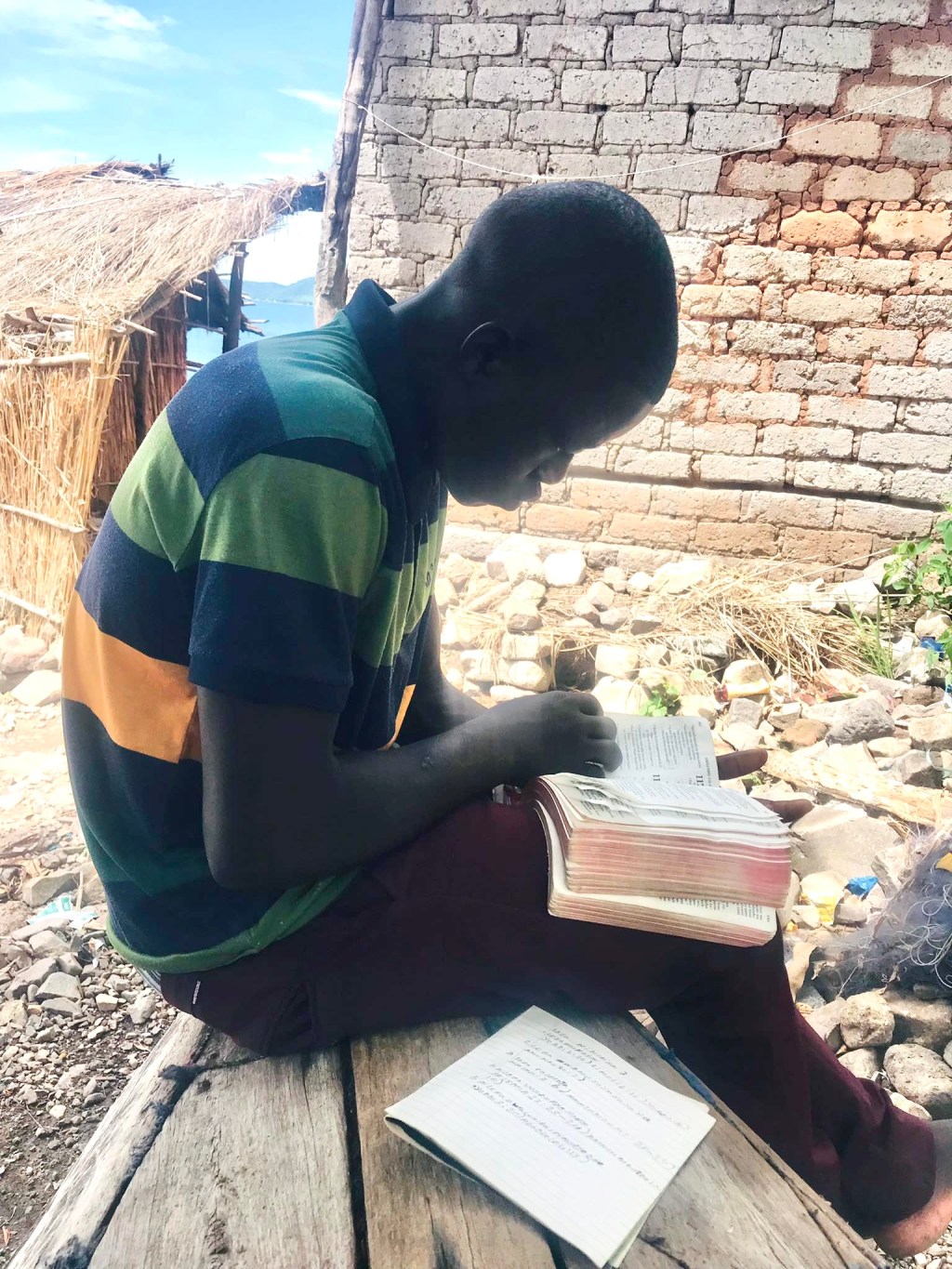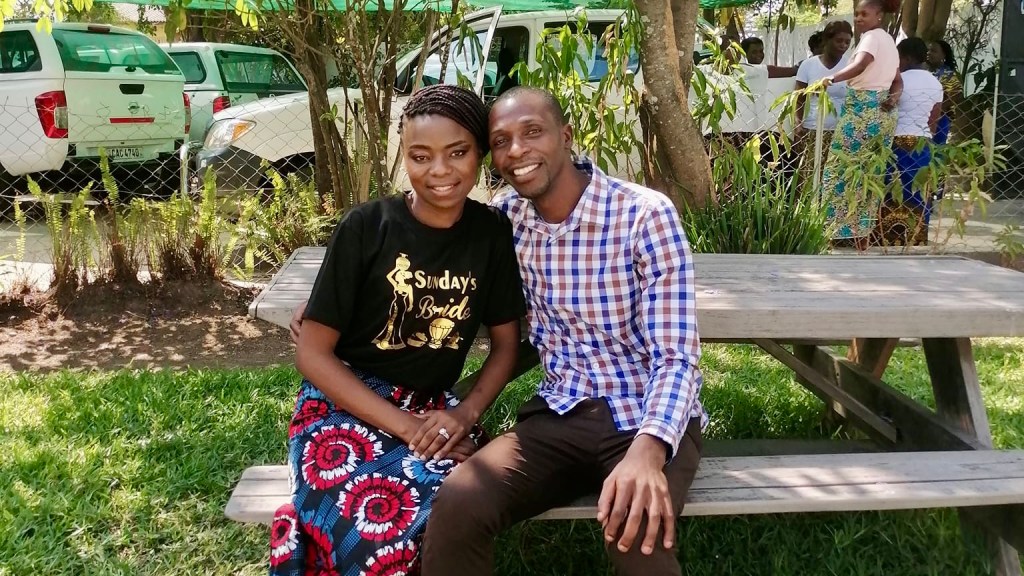There is a drought in Africa.
The poisoned water of the health and prosperity gospel flows freely across Africa. The poisoned water of man-centered, works-based religion is abundantly available. The syncretistic water of African Traditional Religion saturates large segments of professing African Christianity.

“My people die for lack of knowledge,” cried Hosea (Hosea 4:6)! Our people in Africa are dying, too, without knowing their sinful condition or guilt before a holy God. Millions are swarming through the wide gate to eternal destruction in the Lake of Fire (Matthew 7:13,14,23). People shackled by sin, selfishness, and false beliefs die due to a drought of the water of life.
The church is how the water of life flows to the nations (John 4:14-15). The church is called to boldly proclaim Jesus as Savior to “every tribe, tongue, nation, and people” (Revelation 5:9). Through the preaching of the gospel, men will be saved. Through trained disciples, the gospel will be proclaimed throughout the world. “And what you have heard from me in the presence of many witnesses entrust to faithful men, who will be able to teach others also (2 Timothy 2:2).”
THE CHALLENGES AND OPPORTUNITIES OF ADVANCING THE GOSPEL IN AFRICA
The Challenge of Urbanization:
At the beginning of the twentieth century, a few cities were on Africa’s coasts, but most people were rural dwellers. Not so today. Africa is the most rapidly urbanizing continent in the world. Though traditional village life still exists, the percentage of people living in rural areas is in decline as people move to towns and cities.
Over a third of people in sub-Saharan Africa now live in urban centers. Most urban dwellers in Africa reside in cities with 200,000 people or less. In thirty years, the urban population will increase to over half the continent’s population. The United Nations Population Fund projects that sub-Saharan Africa’s urban population will double between 2000 and 2030.[1]
With urbanization comes the opportunity and challenge of reaching new and rapidly growing cities with the gospel of Jesus Christ.
The urban church planter in Africa will face many serious challenges. He must be prepared for the task.
First, Africans in urban settings develop an appetite for material things. Second, the traditional family structure is disintegrating. Urban pressures on the traditional family are immense. Instead of focusing on family relationships, the focus shifts to job demands. The family unit breaks up, and traditional family connections and responsibilities disintegrate. Third, with urbanization comes exposure to education, philosophies, and ideas from the Western world. Urbanized people increasingly embrace a plurality of ideas relating to God. These ideas are often syncretized in one way or another with African Traditional Religious beliefs. Finally, urban communities buy into the idea that everything is relative over time. There is no absolute truth. We see a growing number of professing atheists among young university-educated young people in Africa.
As the South African educator B.J. van der Walt observed in his essay Secularism: The Most Dangerous Enemy of Christianity: “On this continent, we daily see and experience the devastating effects of secularization and a secular way of life. Both traditional and Christian values are destructed when people live and die ‘as if God does not exist or matter.’”
The answer to Africa’s challenges is training a new generation of servant-leaders for Great Commission living.
The challenge of strengthening weak existing churches:
Africa has the fastest-growing church in the world. Yet a careful look at the church in Africa is cause for great concern. A study done among 250 church plants with the Baptist Union in South Africa found that [2]
- Over one-third of these churches are pastored by “remote control,” meaning the pastor does not stay locally with their church but travels there on Sundays/weekends or only visits two Sundays or less per month.
- Less than half of the pastors believe that preaching verse-by-verse through God’s Word is the best food for their flock. Over half say they would instead choose what to preach and more subjective guidelines or preach evangelistically.
- Only one-third of the pastors say they are sure most congregants understand the gospel well.
- Over half of these churches still do not have a capable pastor or leader who has received adequate training (even non-formal).
In his book, The Theological Task of the Church in Africa, African theologian Tite Tienou writes, “Africa has the fastest growing Church in the world; it may also have the fastest declining Church! Numerical growth far outpaces spiritual depth and maturity in African Christianity”.[3]
Tienou later wrote, “I consider the deepening and the nourishing of the faith of those who identify themselves as Christians [in Africa] to be of the utmost urgency.” [4]
The challenge of planting new churches:
As Africa’s population doubles in the coming years, towns and cities across Africa will also double in size.[5] Population growth is a challenge and an opportunity for the church to train and send church planters to these new communities. The rate of church planting by the church is not keeping pace with the need. Trained pastors and teachers of the Word are urgently needed.
THE KEYS TO RESPONDING TO THIS CHALLENGE
We must commit to theological training.
John Stott, in his commentary on 2 Timothy, wrote, “There is an increasing need, especially as the process of urbanization continues and standards of education rise, for Christian ministers to exercise in the teeming cities of the developing world a systematic expository preaching ministry, ‘to proclaim the Word . . . with all teaching.’” [6]
Theological training must equip men and women to minister from a biblical perspective. This training is desperately needed to meet the challenge of planting healthy, biblical, Christ-centered, reproducing churches across Africa in every city, town, and village.
Theological education must produce minds transformed by the Word of God. As the truth of Scripture renews the Christian’s mind, the whole life changes, resulting in obedience to God in everyday life.
The catalyst for transformed minds is the gospel. The primary means for disseminating this transforming truth is preaching. “How heavenly wisdom comes to man is through the foolishness of preaching.” (I Corinthians 1:21)
Preachers and teachers of the Word must be trained in the Scriptures. The local church is responsible for providing this training. Local church pastors must take responsibility for their instruction in the truth and train the next generation to do the same.
When Paul arrived in Ephesus in Acts 19, he began teaching in the Jewish Synagogue. After three months, he was expelled from the Synagogue. Paul then gathered Christians daily at the School of Tyrannus and provided theological and ministry training for hours every day. In public and from house to house, Paul taught the Word of God, not failing to declare anything that would be profitable to them (Eph. 20:20). Years later, Paul wrote to Timothy, the Ephesian church pastor, reminding him of his primary task to commit the truth he had received to other faithful men who would also teach others. (2 Timothy 2:2)
We must commit to training servant-leaders.
The commonly accepted value in Africa is that the means of attaining a leadership position is to fight your way up the ladder, using your network of relationships as the rungs to climb on. The popular concept of leadership is that a leader is someone with the authority to demand the respect and service of others. Sadly, many African Christians view leadership in the same way.
Jesus’ disciples struggled to reconcile greatness with the teachings of Christ. They failed to understand that leaders in Christ’s kingdom are servants of all (Luke 22:24-27)!
Jesus uses servants to lead His mission. His disciples must understand this, so Christ gave them an example of servant leadership in the final hours before his arrest. Picking up a towel and basin, Jesus began to wash His disciples’ feet. Washing feet was a most menial task in Hebrew society. As Jesus moved from one disciple to another, he came to Judas Iscariot. Knowing that Judas had accepted money to betray him, Jesus washed the feet that would bring the soldiers to arrest Him (John 13:1-20). Jesus turned and said to His followers, “I have given you an example that you also should do just as I have done to you. Truly, truly, I say to you, a servant is not greater than his master, nor is a messenger greater than the one who sent him” (Jn 13:15–16).
What does it mean to be a leader in God’s kingdom? – It means being a servant! Ministry is about a basin and a towel! The gospel advances as humble servants of Jesus take the gospel to those who do not yet know Him (1 Corinthians 4:1-2).
PARTNERSHIP IN TRAINING
The spiritual drought in Africa can only be met through the gospel. God commands the church to proclaim the gospel to every man, woman, and child (Mark 16:15). God ordained that through the foolishness of preaching, men will come to Christ for salvation (1 Corinthians 1:21). If the gospel is not sent by the church and boldly proclaimed by faithful disciples, men and women will never come to the knowledge of Jesus (Romans 10:14-17).
For the gospel to advance in Africa, we must pray and labor for healthy, reproducing churches. Those churches must commit to training servant leaders. African missionary church planters must be equipped to go with the gospel, sent by African churches that sacrifice to carry the gospel to communities that do not yet have a healthy church.
As local churches in Africa take responsibility for training the next generation of pastors and missionaries, universities and seminaries like Central Africa Baptist University can assist by providing a word-saturated classroom experience with real-time ministry opportunities in the context of mentoring relationships. For this reason, our Bible Department is staffed by faculty members who are also local church pastors and highly qualified academically to teach in an undergrad program. Our burden is to prepare men for ministry across Africa with a biblical philosophy of pastoral ministry, a Pauline passion for the Great Commission, and a commitment to the centrality and authority of the local church.
CONCLUSION
The escalating challenges in Africa present the church with a unique opportunity to fulfill its Great Commission mandate. The urgent need for theologically trained servant-leaders is apparent as we navigate tradition and false teaching. These leaders, rooted in the gospel and equipped with a servant’s heart, can help advance the church’s mission as bold proclaimers of the message of Jesus Christ. By partnering in this mission, local churches, educational institutions, and believers worldwide can contribute to the mission of God that promises not just to stem the tide of secularism and syncretism but to see a new era of growth and spiritual depth across Africa. This is our call to action, inviting others to join hands in God’s mission, making disciples of all nations, and ensuring that the water of life flows freely to every corner of Africa.
————————————
[1] State of the World Population. http://www.unfpa.org/swp/
[2] Launching Church Strengthening Movements in Africa, Tim Cantrell, EMQ, October 2006
[3] Tienou, Tite. 1998. “The Theological Task of the Church in Africa. Issues in African Christian Theology. Nairobi, Kenya: East Africa Educational Publishers Ltd. Quoted in “Launching Church Strengthening Movements in Africa,” Tim Cantrell, EMQ October 2006.)
[4] Tienou, Tite. 2001. “The State of the Gospel in Africa.” Evangelical Missions Quarterly, 37(2): 154-162, Quoted in ‘Launching Church Strengthening Movements in Africa,’ Cantrell, Tim. 2006. Evangelical Missions Quarterly.)
[5] State of the World Population. http://www.unfpa.org/swp/
[6] Stott, John. “Guard the Gospel: The Message of II Timothy,” p. 109.





Leave a comment